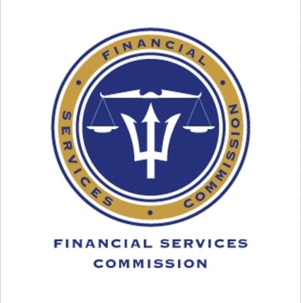What you need to know
In March 2017, the Financial Services Commission (Commission) updated its fit and proper assessments of persons holding key positions in the organizations which it regulates. This was done to ensure that the financial institutions under the purview of the Commission comply with the relevant sections of the Financial Services Commission Act, the Cooperatives Societies Act Cap. 378A, the Money Laundering and Financing of Terrorism (Prevention and Control) Act, 2011-23. These sections establish that appropriate fitness and propriety of officers is mandatory for the registration and continuing operations of all financial institutions regulated by the Commission.
What is a Fit and Proper Regime and why is it important for the Credit Union Sector?
A fit and proper regime mainly fulfils a gatekeeper role by ensuring that the individuals holding key roles have the required levels of competence and integrity. It is a benchmark that is used to assess whether the individual is suitable to perform the relevant function. The implementation or a robust fit and proper regime protects the members of the credit unions and their savings through improved governance standards at the Board, Committees and Management levels. The regime also ensures that these key persons have the appropriate skills, experience and knowledge required to manage and govern the credit unions for the benefit of all stakeholders.
To whom does a fit and proper assessment apply?
The fit and proper assessment applies to the Board of Directors, members of the Supervisory and Credit Committees and Senior Management. These individuals are the persons responsible for the oversight and implementation of the overall strategy of the credit union. They are also expected to meet high standards of competence commensurate with the scale and complexity of the credit union and should demonstrate a commitment to the values and the principles of the credit union.
What does the Commission look for when performing a Fit and Proper Assessment?
There are three main areas that are evaluated when trying to determine whether an individual holding a key role is fit and proper. These are:
- Competence and Capability
- Reputation and Character
- Financial Soundness
What is meant by competence and capability?
This is where the Commission makes a determination of whether individuals holding key roles within the credit union are competent and possess the skills necessary to undertake the relevant functions. This assessment determines whether the individual has the qualifications, experience, skills, knowledge and soundness of judgement to properly undertake and fulfill the particular duties and responsibilities of the position.
What is meant by Reputation and Character?
Put simply, an individual who sits on the Board of Directors, Committee or is a Senior Manager must be a person who is honest, fair and acts with integrity. Having key persons with such attributes is essential to the good reputation and trustworthiness of the credit union sector. When evaluating the reputation and character of an individual holding a key position, the Commission considers the responses to a number of various questions, some of which are provided in the Table 1.
Table 1: Questions related to Reputation and Character
|
Have you ever, in any jurisdiction, been dismissed or asked to resign and resigned from any profession, vocation, office or employment, or from any position of trust or fiduciary appointment, whether or not remunerated? |
|
Have you ever, in any jurisdiction, been convicted of an offence, involving money laundering, terrorist financing, fraud, misrepresentation, dishonesty, breach of trust, or an offence which would be relevant to your ability to perform the relevant function? |
|
Have you been or are you being investigated, disciplined, censured or suspended by a regulatory or professional body, a court or tribunal or any similar body, whether publicly or privately, in any jurisdiction? |
|
Have you ever, in any jurisdiction, been found by a regulatory or equivalent body to have perpetrated or participated in any negligent, deceitful or otherwise discreditable business or professional practice? |
What is meant by financial soundness?
Financial soundness is a very important element in determining the fitness and probity of key credit union officers. In determining the financial soundness of an individual in a key role, the Commission assesses whether the individual can maintain personal solvency and has prudential financial control. When assessing the financial soundness holding a key position, the Commission considers the response to a number of questions included those listed in Table 2.
Table 2: Questions related to Financial Soundness
|
Have you ever defaulted upon payments due arising from a scheme of arrangement with your creditors or made an assignment for the benefit of your creditors? |
|
Have you ever, in any jurisdiction, been subject to a judgement debt which is unsatisfied, either in whole or in part? |
|
Were you ever, or are you currently the subject of a bankruptcy petition in any jurisdiction? |
|
Have you ever, in any jurisdiction, been adjudicated as bankrupt and the bankruptcy is undischarged? |
When is the Fit and Proper Assessment of and individual conducted?
The fit and proper assessment is conducted as an initial test undertaken during consideration of the application process or appointment to the position. The assessment is also a continuing test in relation to the conduct of the business and the person’s relationship with the credit union.
What happens if an individual holding a key role is no longer considered Fit and Proper?
Individuals holding key roles within a credit union are expected to remain suitable for the position that they hold. If the individual is no longer considered fit and proper then they will no longer be able to continue to hold the position in the credit union.
The Financial Services Commission (FSC) is an integrated regulatory body, established on April 1st, 2011 by virtue of the Financial Services Commission Act (2010), responsible for supervising and regulating non-bank financial institutions in Barbados

